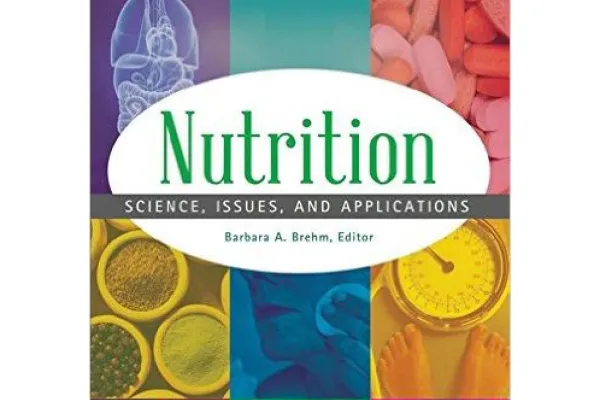Encyclopedic Opportunities: Book Project Offers Bylines, Inspiration for 100 Students
Research & Inquiry

Published October 5, 2015
When Fei Peng ’16 enrolled at Smith, she didn’t expect to become a writer. But now, at the beginning of her senior year, the biochemistry major from Boston is already a published author.
In fact, Peng is one of nearly 100 Smith undergrads who earned author credit for Nutrition: Science, Issues and Applications, a new encyclopedia edited by Professor of Exercise and Sport Studies Barbara Brehm-Curtis and published in June by Greenwood Press, a subsidiary of ABC-CLIO.
The opportunity to publish as an undergraduate is rare. So two years ago, when Greenwood approached Brehm-Curtis about writing a nutrition encyclopedia, the professor of exercise and sport studies wanted to turn the book into a project that would benefit her students.
“This is what Smith is all about,” she said. “When you’re a student at a small school, you have an opportunity to work closely with faculty—and maybe to have your name on a publication.”
Brehm-Curtis—who has previously written books on health, nutrition and stress management—first developed an outline for the encyclopedia, sketching out the format, structure and potential topics for more than 300 subject entries. The book covers everything from basic nutrition to health and obesity, including healthy approaches to weight control, nutrients, “brain foods” and dietary supplements.
Brehm-Curtis recruited writers among her professional colleagues and students, and to engage potential student authors, she cast a wide net. A number of students in Brehm-Curtis’ first-year seminar on health and wellness wanted to participate, as did STRIDE student Melissa Jue ’16 and AEMES Scholar Jennifer Najera ’16. A number of authors came from Brehm-Curtis’ Special Topics in Nutrition course.
In the end, the published encyclopedia features bylines from 100 Smithies—94 undergraduates, four ESS graduate students and two alumnae. Eight students from the other Five Colleges are included, too, for a total of 118 student writers. All were students who had “been in one of my courses and enjoyed writing,” Brehm-Curtis notes.
The editorial process was ideal for enhancing young authors’ writing skills. Each student would first develop an outline for her encyclopedia entry and submit it to Brehm-Curtis for review. Once the outline was finalized, the student would research and draft the article and then work with Brehm-Curtis on multiple versions, refining all the way. The encyclopedia’s format dictated that each entry be accompanied by a list of sources—so students had an opportunity to develop research experience, as well as writing expertise.
Fei Peng ’16 chose the encyclopedia as her first-year STRIDE project because of her longstanding interest in nutrition, health and diet. The author of six entries in the encyclopedia, Peng says that the work allowed her to learn more about her chosen topics (PKU, colostrum, three dietary supplements, and insulin—a topic she chose because her grandfather is diabetic) while also helping her to develop her research and writing skills.
“I was surprised by how much research was involved,” she said, “especially on topics that weren’t already widely written about.”
Jenny Najera ’16 came to the encyclopedia as an AEMES scholar; she took it on because it was outside of her chosen major of psychology. (She also minored in studio art.)
“As a first-year it can be scary to do research,” said Najera, “but this project really helped boost my confidence. It helped me determine how to find reliable sources. And I learned that I enjoyed doing research!”
For Micaela Young ’14, the encyclopedia was life changing, sparking a serious academic interest in nutrition, as well as a political interest in how policies shape what we eat. A biology major with a minor in exercise science at Smith, Young wrote an encyclopedia entry on arthritis as a student in Brehm-Curtis’ nutrition class. Then the professor asked her to author three more entries (on inflammation, upper respiratory infections and omega 3 fatty acids).
“The fact that I was invited to write for this encyclopedia gave me goals,” Young said, “and it gave me a passion for something to work on after Smith. And the fact that a professor had sought me out—that gave me the confidence to go into the workforce.”
After graduating in 2014, Young worked for several months with a leading vitamin and supplement investigator and now is a graduate student in the Nutrition Behavior and Community Change master’s program at Tufts.
Young says her research for the nutrition encyclopedia helped her realize how much “nonsense” there is in the world of nutrition. “I enrolled at Tufts,” she said, “because I want to be a reliable voice in the chaos. That all began with the encyclopedia.”